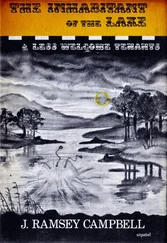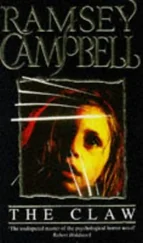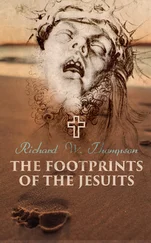Thomas Campbell - The Jesuits, 1534-1921
Здесь есть возможность читать онлайн «Thomas Campbell - The Jesuits, 1534-1921» — ознакомительный отрывок электронной книги совершенно бесплатно, а после прочтения отрывка купить полную версию. В некоторых случаях можно слушать аудио, скачать через торрент в формате fb2 и присутствует краткое содержание. Жанр: foreign_antique, foreign_prose, Историческая проза, на английском языке. Описание произведения, (предисловие) а так же отзывы посетителей доступны на портале библиотеки ЛибКат.
- Название:The Jesuits, 1534-1921
- Автор:
- Жанр:
- Год:неизвестен
- ISBN:нет данных
- Рейтинг книги:4 / 5. Голосов: 1
-
Избранное:Добавить в избранное
- Отзывы:
-
Ваша оценка:
- 80
- 1
- 2
- 3
- 4
- 5
The Jesuits, 1534-1921: краткое содержание, описание и аннотация
Предлагаем к чтению аннотацию, описание, краткое содержание или предисловие (зависит от того, что написал сам автор книги «The Jesuits, 1534-1921»). Если вы не нашли необходимую информацию о книге — напишите в комментариях, мы постараемся отыскать её.
The Jesuits, 1534-1921 — читать онлайн ознакомительный отрывок
Ниже представлен текст книги, разбитый по страницам. Система сохранения места последней прочитанной страницы, позволяет с удобством читать онлайн бесплатно книгу «The Jesuits, 1534-1921», без необходимости каждый раз заново искать на чём Вы остановились. Поставьте закладку, и сможете в любой момент перейти на страницу, на которой закончили чтение.
Интервал:
Закладка:
St. Ignatius was chosen General on Easter Sunday, 1541. After the election, the companions repaired to St. Paul's outside the Walls and there renewed their vows. On that occasion it was ordained that every professed father should, after making his vows, teach catechism to children or ignorant people for forty days; subsequently this obligation was extended to rectors of colleges after their installation. Ignatius acquitted himself of this task in the church of Our Lady of the Wayside at the foot of the Capitol.
In 1541 we find Salmerón and Brouet on their way to Ireland as papal nuncios. They had been asked for by Archbishop Wauchope of Armagh, when Henry VIII was endeavoring to crush out the Faith in England and Ireland. Wauchope is a very interesting historical character. He had been named Archbishop of Armagh after Browne of that see had apostatized. He was generally known as "the Scotch Doctor," and had been the Delegate of Pope Paul III at Spires where Charles V was striving in vain to conciliate the German princes. With him as advisers were Le Jay, Bobadilla and Faber. What made him especially conspicuous then and subsequently, was the fact that he had risen to the dignity of archbishop and of papal delegate though he was born blind. This is asserted by a host of authors, among them Prat in his life of Le Jay, and Crétineau-Joly, MacGeoghegan and Moore in their histories.
On the other hand we find in the "Acta Sanctæ Sedis" (XIII) a flat denial of it by no less a personage than Pope Benedict XIV. It occurs incidentally in a decision given on March 20, 1880, in connection with an appeal for a young theologian, whose sight was very badly impaired at the end of his theological course. The appellants had alleged the case of the Archbishop of Armagh and the court answered as follows: "Nec valeret adduci exemplum cujusdam Roberti Scoti, cui quamvis cæco a puerili ætate, concessa fuit facultas nedum ad sacerdotium sed etiam ad episcopatum, ascendendi, uti tenent Maiol. ( De irregularitate ), et Barbos ( De officio episcopi ). Respondet enim Benedictus XIV, quod reliqui scriptores, quibus major fides habenda est, Robertum non oculis captum sed infirmum fuisse dicunt;" which in brief means: "Benedict XIV declares that the most reliable historians say that Scotch Robert was not blind but of feeble vision." As Benedict XIV was perhaps the greatest scholar who ever occupied the Chair of Peter, and as his extraordinary intellectual abilities were devoted from the beginning of his career to historical, canonical and liturgical studies, in which he is regarded as of the highest authority, such an utterance may be accepted as final with regard to the "Scotch Doctor's" blindness.
Codure was to have been one of the Irish delegates, but he died, and hence Salmerón, Brouet and Zapata undertook the perilous mission. The last mentioned was a wealthy ecclesiastic who was about to enter the Society and had offered to defray the expenses of the journey. In the instructions for their manner of acting Ignatius ordered that Brouet should be spokesman whenever nobles or persons of importance were to be dealt with. As Brouet had the looks and the sweetness of an angel, whereas Salmerón was abrupt at times, the wisdom of the choice was obvious. They went by the way of France to Scotland, and when at Stirling Castle, they received a letter from James V, the father of Mary Queen of Scots, bespeaking their interest in his people. Crétineau-Joly says they saw the king personally. Fouqueray merely hints at its likelihood. From Scotland they passed over to Ireland and found that the enemy knew of their arrival. A price was put upon their heads, and they had to hurry from place to place so as not to compromise those who gave them shelter. But in the brief period of a month which they had at their disposal before they were recalled by the Pope they had ample opportunity to take in the conditions that prevailed. They returned as they had gone, through Scotland and over to Dieppe, and then directed their steps to Rome, but they were arrested as spies near Lyons and thrown into prison – a piece of news which Paget, the English ambassador in France, hastened to communicate to Henry; Cardinals de Tournon and Gaddi, however, succeeded in having them released and they then proceeded to the Holy City to make their report.
Eighteen years later, Father Michael Gaudan was sent as papal nuncio to Mary Stuart. He entered Edinburgh disguised as a Scottish peddler and succeeded in reaching the queen. As a Frenchman could not have acted the part of a Scottish peddler, it is more than likely that Gaudan is a gallicized form of Gordon. Indeed, there is on the records a Father James Gordon, S. J., who had so exasperated the Calvinists by his refutation of their errors that he was driven out of the country. He returned again, however, immediately, as he simply got a boat to take him off the ship which was carrying him into exile, and on the following day he stood once more upon his native heath, remaining there for some years sustaining his persecuted Catholic brethren (Claude Nau, Mary's secretary).
That the "blind Archbishop" also succeeded in reaching his see is clear from a passage in Moore's "History of Ireland" (xlvii), which tells how during the reign of Edward VI two French gentlemen, the Baron de Fourquevaux and the Sieur Montluc, afterwards Bishop of Valence, went to Ireland as envoys of the French king and were concealed in Culmer Fort on Loch Foyle. They kept a diary of their journey which may be found, we are assured, in the "Armorial-général ou registre de la noblesse de France." The diary relates that while at the Fort "they received a visit from Robert Wauchope, better known by his pen name as Venantius, a divine whose erudition was the more remarkable as he had been blind from birth and was at the time, titular Archbishop of Armagh." He did not, however, remain in Ireland. MacGeoghegan says "he returned to the Continent and died in the Jesuit house at Paris in the year 1551." Stewart Rose in her "Saint Ignatius Loyola and the Early Jesuits" tells us it was at Lyons, but that was impossible, for there was no Jesuit establishment in Lyons until after the great pestilence of 1565, when the authorities offered the Society the municipal college of the Trinity as a testimonial of gratitude to Father Auger. The generosity of this offer, however, was not excessive. The Fathers were to take it for two years on trial. They did so and then the provincial insisted that the gift should be absolute or the staff would be withdrawn. After some bickering on the part of a number of Calvinist échevins or aldermen, the grant was made in perpetuity and confirmed by Charles IX in 1568.
Meantime, Faber had been laboring in Germany. He was to have been the Catholic orator at Worms in 1540, but conditions were such that he made no public utterance. Melanchthon was present, but whether Faber and he met is not clear. In 1541 Faber received an enthusiastic welcome at Ratisbon from the Catholics, especially from Cochlæus, the great antagonist of Luther. Among his opponents at the Diet were Bucer and Melanchthon; the discussion, as usual, led to no result. In one of his letters he notes the inability of the Emperor to prevent the general ruin of the Faith. From Ratisbon he went to Nuremberg, but as the legate had been recalled, Faber's work necessarily came to an end. Le Jay and Bobadilla succeeded him in Germany. The former addressed the assembly of the bishops at Salzburg, preached in the Lutheran churches, escaped being poisoned on one occasion and drowned on another; he failed, however, to check the flood of heresy, which had not only completely engulfed Ratisbon, but threatened to overwhelm Catholic Bavaria, although Duke William maintained that such an event was impossible. Ingolstadt had already been badly damaged, both doctrinally and morally; and Bobadilla was despatched thither by the legate to see what could be done.
Читать дальшеИнтервал:
Закладка:
Похожие книги на «The Jesuits, 1534-1921»
Представляем Вашему вниманию похожие книги на «The Jesuits, 1534-1921» списком для выбора. Мы отобрали схожую по названию и смыслу литературу в надежде предоставить читателям больше вариантов отыскать новые, интересные, ещё непрочитанные произведения.
Обсуждение, отзывы о книге «The Jesuits, 1534-1921» и просто собственные мнения читателей. Оставьте ваши комментарии, напишите, что Вы думаете о произведении, его смысле или главных героях. Укажите что конкретно понравилось, а что нет, и почему Вы так считаете.












